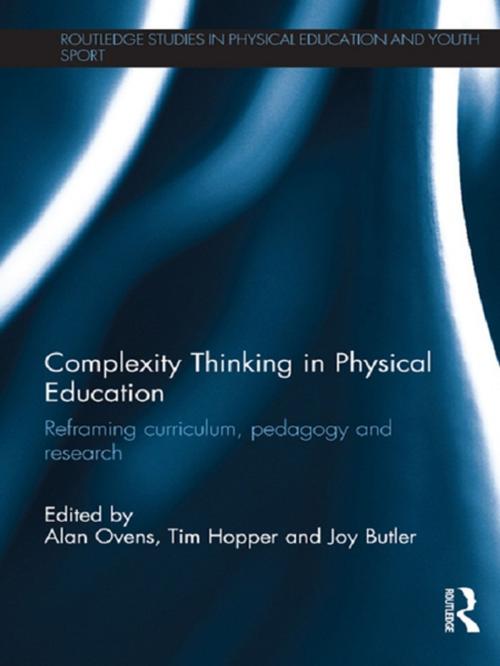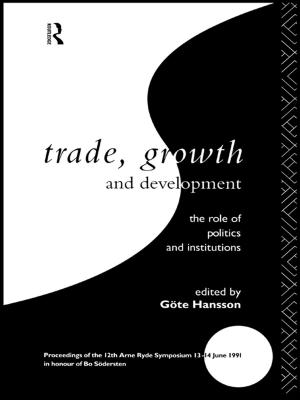Complexity Thinking in Physical Education
Reframing Curriculum, Pedagogy and Research
Nonfiction, Reference & Language, Education & Teaching, Teaching, Physical Education, Sports| Author: | ISBN: | 9781136456138 | |
| Publisher: | Taylor and Francis | Publication: | January 4, 2013 |
| Imprint: | Routledge | Language: | English |
| Author: | |
| ISBN: | 9781136456138 |
| Publisher: | Taylor and Francis |
| Publication: | January 4, 2013 |
| Imprint: | Routledge |
| Language: | English |
In the past two decades, complexity thinking has emerged as an important theoretical response to the limitations of orthodox ways of understanding educational phenomena. Complexity provides ways of understanding that embrace uncertainty, non-linearity and the inevitable ‘messiness’ that is inherent in educational settings, paying attention to the ways in which the whole is greater than the sum of its parts. This is the first book to focus on complexity thinking in the context of physical education, enabling fresh ways of thinking about research, teaching, curriculum and learning.
Written by a team of leading international physical education scholars, the book highlights how the considerable theoretical promise of complexity can be reflected in the actual policies, pedagogies and practices of physical education (PE). It encourages teachers, educators and researchers to embrace notions of learning that are more organic and emergent, to allow the inherent complexity of pedagogical work in PE to be examined more broadly and inclusively. In doing so, Complexity Thinking in Physical Education makes a major contribution to our understanding of pedagogy, curriculum design and development, human movement and educational practice.
In the past two decades, complexity thinking has emerged as an important theoretical response to the limitations of orthodox ways of understanding educational phenomena. Complexity provides ways of understanding that embrace uncertainty, non-linearity and the inevitable ‘messiness’ that is inherent in educational settings, paying attention to the ways in which the whole is greater than the sum of its parts. This is the first book to focus on complexity thinking in the context of physical education, enabling fresh ways of thinking about research, teaching, curriculum and learning.
Written by a team of leading international physical education scholars, the book highlights how the considerable theoretical promise of complexity can be reflected in the actual policies, pedagogies and practices of physical education (PE). It encourages teachers, educators and researchers to embrace notions of learning that are more organic and emergent, to allow the inherent complexity of pedagogical work in PE to be examined more broadly and inclusively. In doing so, Complexity Thinking in Physical Education makes a major contribution to our understanding of pedagogy, curriculum design and development, human movement and educational practice.















